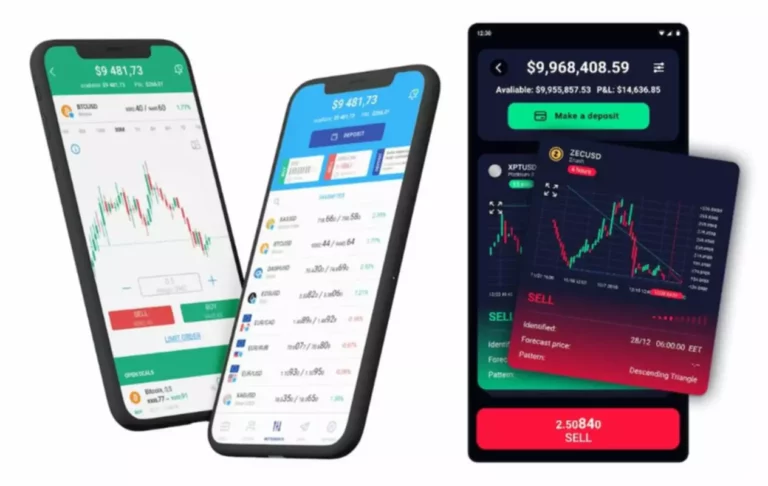Content
In theory, by pulling information https://www.xcritical.com/ from every available source, estimation methods should improve and become more accurate and consistent. In reality, as we’re currently learning, data manipulation brings a host of new ethical and human biases. As leaders of all varieties help everyday individuals trust and appreciate prediction markets, their use and effectiveness will only improve further. Robin Hanson, a professor at George Mason University, is an advocate of prediction markets.
Prediction Market Platform Analysis
This can be useful for forecasting political events, economic trends, and even entertainment outcomes. As more users engage, the Bitcoin data becomes increasingly reliable, reflecting the real-time market sentiment. Prediction markets are a handy way to get involved in events and share your opinion in a financially inclined environment. Users on these platforms are able to wager on these events and form a part of a wide experiment depending on the concerned event.
Prediction markets: Polymarket, BET by Drift, and more
Traders with different beliefs trade on contracts whose payoffs are related to the unknown future outcome and the market prices of the contracts are considered as the aggregated belief. One of its unique features is the ability for users to trade shares before an event is resolved, making markets dynamic and profitable even before outcomes are known. However, Polymarket has faced regulatory issues in the U.S., and users in certain regions are restricted from participating. Rollbit offers an alternative to decentralized prediction markets, primarily focused on sports betting. Supporting over 100 sports, how do prediction markets work including soccer, basketball, and eSports, Rollbit stands out for its diverse betting markets and use of provably fair blockchain-based betting contracts.

Conclusion: Are Prediction Markets the Next Big Thing in Betting?
A key feature of Polymarket is its use of liquidity pools to facilitate trading and real-time market valuations, which ensures fair pricing of shares. Additionally, smart contracts automate the settlement of bets, enhancing trust and reducing the potential for human error. Polymarket’s ability to provide real-time data and market sentiment makes it a valuable tool for analysts and casual bettors alike, offering insights that are often more accurate than traditional polls. A prediction market is a market where people can trade contracts that pay based on the outcomes of unknown future events. The market prices generated from these contracts can be understood as a kind of collective prediction among market participants.
Hence, this can act as a guide to the participant in understanding the market’s prediction. The individual further uses additional information and judgment in making the prediction. Predictions are usually related to politics, financial markets, global events, and other investments. Prediction markets can be used to create crowd-sourced forecasts, collecting predictions from dozens or hundreds of traders rather than a handful of experts.
With its analytical tools and dashboard, Oriole Insights provides a comprehensive environment for users to engage in predictive forecasting and improve their market strategies. A decentralized prediction market is a prediction market that can operate without the control or management of any one central operator. Typically, these markets operate through blockchain-based smart contracts that can self-execute in order to distribute payoffs. One of the pioneers of online predictions markets is the Iowa Electronic Market (IEM), an experiment in market-based forecasting run by faculty of the University of Iowa’s Tippie School of Business. Using real money, speculators on the IEM have been able to forecast the outcome of presidential elections with greater long-run accuracy than traditional opinion polls. Decentralized prediction markets have attracted controversy, both for ethical reasons and the possibility of manipulation.
Metaculus is ideal for those seeking a more intellectual and academic approach to prediction markets. Augur leverages the power of the Ethereum blockchain to offer a decentralized and customizable prediction market experience. Users can create markets on any topic, enabling creativity and flexibility in forecasting. The platform’s REPv2 token incentivizes accurate reporting, ensuring the integrity of market outcomes. Augur’s open-source nature promotes innovation, allowing developers to contribute to its ecosystem.
When considering this low valuation and its apparent technical lead, quantum computing investors appear to have the best chance of succeeding with Alphabet in 2025. Moreover, with commercial viability likely years away, the company’s other attributes may take a front seat in 2025 as quantum computing-related efforts remain focused on research and development. Most of the focus on Alphabet in the quantum computing space revolves around Willow, its quantum chip.

By the end of this article, you’ll have a comprehensive understanding of how Web3 prediction markets work and how they can be a valuable tool in the digital age. The emergence of Web3 technology has brought a new wave of innovation to the internet, transforming how we interact, transact, and even predict future events. Crypto prediction markets and prediction markets, in general, do not cover every significant research population. Most of these platforms can only be used by people who understand how they work and the technology behind them, this is not always are true representation of the concerned population. For instance, the Polymarket prediction market for the US election is largely dominated by crypto-friendly citizens.
As blockchain technology advances and regulatory frameworks evolve, these markets will become more efficient and reliable. Improved scalability solutions and better integration with DeFi applications will further enhance their utility and adoption. By harnessing the collective intelligence of participants, decentralized prediction markets can provide valuable insights and drive innovation across various sectors. The platform allows users to create prediction markets and tokens and bet on outcomes of political, sports, science events and more. Swaye hopes to build a vibrant decentralized prediction market with an active community of ‘degenerates’. Swaye uses the binary outcome strategy by allowing dynamic naming of prediction tokens.
Now that you know the basics, let’s analyze the most popular prediction market platforms and compare them against each other. This seems to be borne out by the fact that some large organizations are already using these prediction markets for their own internal decision making and governance. Selecting the right prediction market platform is crucial for achieving accurate and actionable insights. With numerous platforms available, understanding key factors can guide your decision-making process. Prediction markets add an engaging, participatory layer to entertainment by forecasting outcomes in pop culture. From predicting Oscar winners and box office hits to guessing the outcomes of major sporting events, these markets offer a dynamic and interactive way for fans to get involved.
This can lead to surprisingly accurate predictions, but there’s always some uncertainty. Predictions are based on probabilities, not guarantees—so while they can get it right a lot of the time, there’s no way to be 100% sure. They offer a fresh, exciting way to get involved by tapping into collective knowledge, and the variety of events you can bet on—sports, politics, entertainment, and more!
These platforms use market dynamics to predict real-world events, from political elections to financial market trends, making them invaluable tools for businesses, researchers, and individuals. Despite the decentralized nature of Web3 prediction markets, they are not entirely immune to manipulation. Large players with significant capital can potentially influence market outcomes by placing substantial bets. These platforms represent the forefront of innovation in the Web3 prediction market space, each offering unique features and advantages. As we move further into 2024, these markets are expected to continue evolving, providing even more opportunities for users to engage and profit from their predictions. A blockchain-based prediction market, Stox offers users the ability to trade on various events and earn rewards.
- On the other hand, markets structured like financial contracts are generally subject to less regulation, as long as they are set up properly and don’t violate laws about securities or commodities.
- By staying informed and understanding both the benefits and challenges, users can navigate this exciting space with greater confidence.
- We curated a list of metrics to evaluate crypto platforms based on their services, user experience, security and customer support, payment gateways and charges, pricing and promotions.
- By engaging employees and stakeholders, organizations create internal markets that provide real-time insights and help shape strategic decisions.
- It was the subject of a 2022 lawsuit by CTFC (Commodity Futures Trading Commission).
- It offers gasless transactions on the Polygon network, which significantly reduces transaction fees for users.
- Also similar to Augur, voters are punished financially for inaccurate reporting, but rewarded for accurate results.
Traders “vote” by placing bets on what they believe is the most likely outcome, thereby causing the price of that outcome to rise or fall. This market mechanism effectively turns the share price for each outcome into a crowdsourced estimate of that outcome’s probability. The oldest online prediction market is the Iowa Electronic Markets, run by the University of Iowa. Launched in 1988, it has been used to forecast the results of presidential elections with greater accuracy than traditional opinion polls. However, Solana has emerged as a viable network alternative for crypto prediction markets, mainly due to its high throughput speed and low fees. The growth of prediction markets in recent years mirrors the broader adoption of online sports betting and gambling.
Admittedly, quantum computing is a technology in search of real-world applications. Still, the ability to address the error issues bodes well for Alphabet’s efforts to make quantum computing both beneficial and profitable. Some platforms charge as little as $.01 per contract, while others take a cut of profits. For example, imagine an event contract on whether or not the S&P 500 will close above 7,000 points by the end of 2025. Prediction markets have been around for some time, but putting them on the blockchain has made them far more reliable and accurate.



